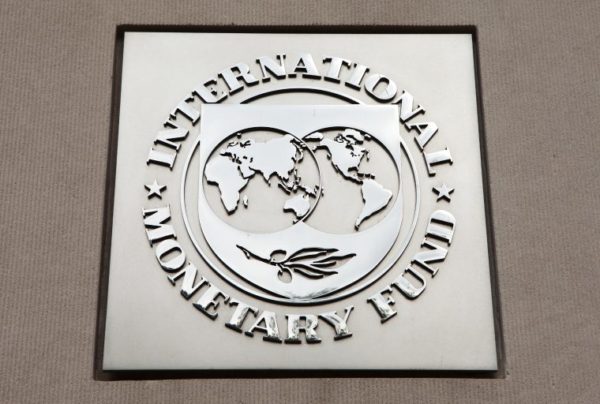The International Monetary Fund (IMF) has advised the Central Bank of Nigeria (CBN) to issue operating licenses to cryptocurrency dealers in the country.
In its 2024 Staff Report released at the weekend, the IMF recommends that global crypto trading platforms be registered or licensed in Nigeria just like similar operators like Bureaux De Change (BDCs) which are licensed by the CBN to carry out forex transactions at the retail end of the market.
The IMF further advised that such crypto trading platforms should be subjected to the same regulatory requirements applicable to financial intermediaries following the principle of same activity, same risk, and same regulation.
The CBN had earlier disclosed that crypto traders use peer-to-peer trading to manipulate the naira. The apex bank asserted in February 2024 that Binance processed $26 billion in untraceable transactions, and have stopped banks and other financial institutions from banking crypto traders.
But the IMF said the apex bank should rather license the crypto traders. It said: “Rapid growth of transactions on FX trading platforms poses new challenges. At the end of February, the authorities closed the operations of Binance and other crypto-asset trading platforms that were being used by Nigerians to facilitate capital flight—neither the identity of traders nor the origin of their funds could be traced.”
“The authorities also revoked the licenses of 4,173 Bureaux De Change (BDCs) that failed to comply with CBN accounting and reporting requirements. Staff recommends that global crypto trading platforms be registered or licensed in Nigeria and subject to the same regulatory requirements applicable to financial intermediaries following the principle of same activity, same risk, and same regulation”.
The IMF said the Nigeria’s progress in fight against money laundering and terrorism financing prepares it for the task. “Nigeria has made welcomed progress on improving its Anti-Money Laundering and Combating Financing of Terrorism (AML/CFT) framework, but further action is needed in line with Financial Action Task Force (FATF) recommendations. Nigeria has undertaken a series of measures including legislative reform, conducted a money laundering and terrorism financing risk assessment, built awareness for competent authorities and the private sector, and increased investigation and prosecution of money laundering to correct identified deficiencies in the AML/CFT framework,” the Fund said.
The IMF further called for continued action to strengthen the AML/CFT framework, such as improved application of key preventive measures (such as the identification/verification of beneficial ownership information, measures to mitigate risks related to politically exposed persons, and reporting of suspicious transactions), effective AML/CFT risk-based supervision and sustained increase in investigations and prosecutions, can also help improve tax compliance and anti-corruption efforts.
It stated that addressing governance weaknesses, corruption vulnerabilities and strengthening the rule of law will help unlock Nigeria’s growth potential.
“The authorities have made progress on strengthening legislation, including the Petroleum Industry Act, AML Act, and Proceeds of Crime and Management of Assets Act, the Nigerian Financial Intelligence Unit (NFIU) Act and amendments to the Companies and Allied Matters Act, as well as the establishment of its beneficial ownership register. Reforms to the mineral mining laws to modernize the industry and introduce stronger governance controls, should be accelerated to strengthen the investment climate in the sector. Reforms to the 2007 Nigeria Extractive Industries Transparency Initiative (NEITI) law should include stronger enforcement powers and monitoring compliance,” it stated.
The Fund advised that transparency measures in the revised mineral and NEITI law should be in line with international best practice.
It listed other outstanding reforms as removing legislative barriers to public access to the asset declarations of public officers, and delayed passage of the Federal Audit Service and the Whistleblower and Witness Protection Bills, adding that reforms should also enshrine the independence of the Economics and Financial Crimes Commission.
According to the Fund, gaps are exacerbated by underfunding of agencies—a reflection of Nigeria’s very constrained fiscal space, adding that judicial independence is weakened by the terms of appointment and dismissal, poor compensation, and unmanageable caseloads.
“The authorities recognise the importance of strong governance for inclusive growth and highlight the far-reaching legislative agenda which has been advanced as well as progress on AML/CFT deficiencies. They pointed to automation and digitalization initiatives which they see as key to removing opportunities for corruption, including in the delivery of social transfers. They noted legal action taken to investigate potential corrupt practices, including against high-ranking officials,” the IMF said.
Sustained action is key to exiting the FATF “grey list” and preventing negative 11 Banks hold about 20 percent of their assets in government securities. Pension funds are required to only invest in naira securities and hold up to 70 percent of their portfolio in government securities.



